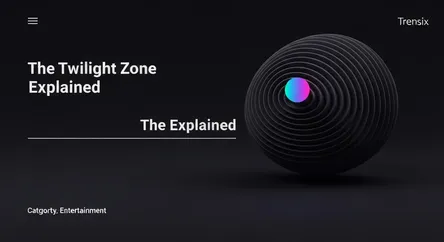Entertainment
The Twilight Zone Explained

Enter the timeless dimension of Rod Serling's 'The Twilight Zone,' the classic sci-fi anthology series known for its surreal and thought-provoking tales.
What Is It?
'The Twilight Zone' is a landmark American science-fiction anthology television series created and primarily written by Rod Serling. Originally airing from 1959 to 1964, each standalone episode delves into fantasy, horror, and suspense, often concluding with a macabre or unexpected twist. The show used its speculative fiction framework to explore complex human nature and critique contemporary social issues, such as prejudice, war, and technology, bypassing network censorship of the era.
Why Is It Trending?
The series remains a cultural touchstone, experiencing resurgences in popularity through various revivals, most recently with Jordan Peele's 2019 reboot. Its themes of social paranoia, existential dread, and the dangers of unchecked power are perpetually relevant, resonating strongly with modern audiences. Its availability on major streaming platforms allows new generations to discover the show, ensuring its timeless stories continue to find a contemporary foothold and spark discussion online.
How Does It Affect People?
'The Twilight Zone' fundamentally affects viewers by serving as a collection of modern parables. Its allegorical stories challenge perceptions of reality and morality, forcing introspection on societal norms and personal biases. The iconic twist endings leave a lasting psychological impact, making its episodes memorable and endlessly debatable. It has profoundly shaped the sci-fi and horror genres, establishing a narrative blueprint for storytelling that uses the bizarre to illuminate the profoundly human.